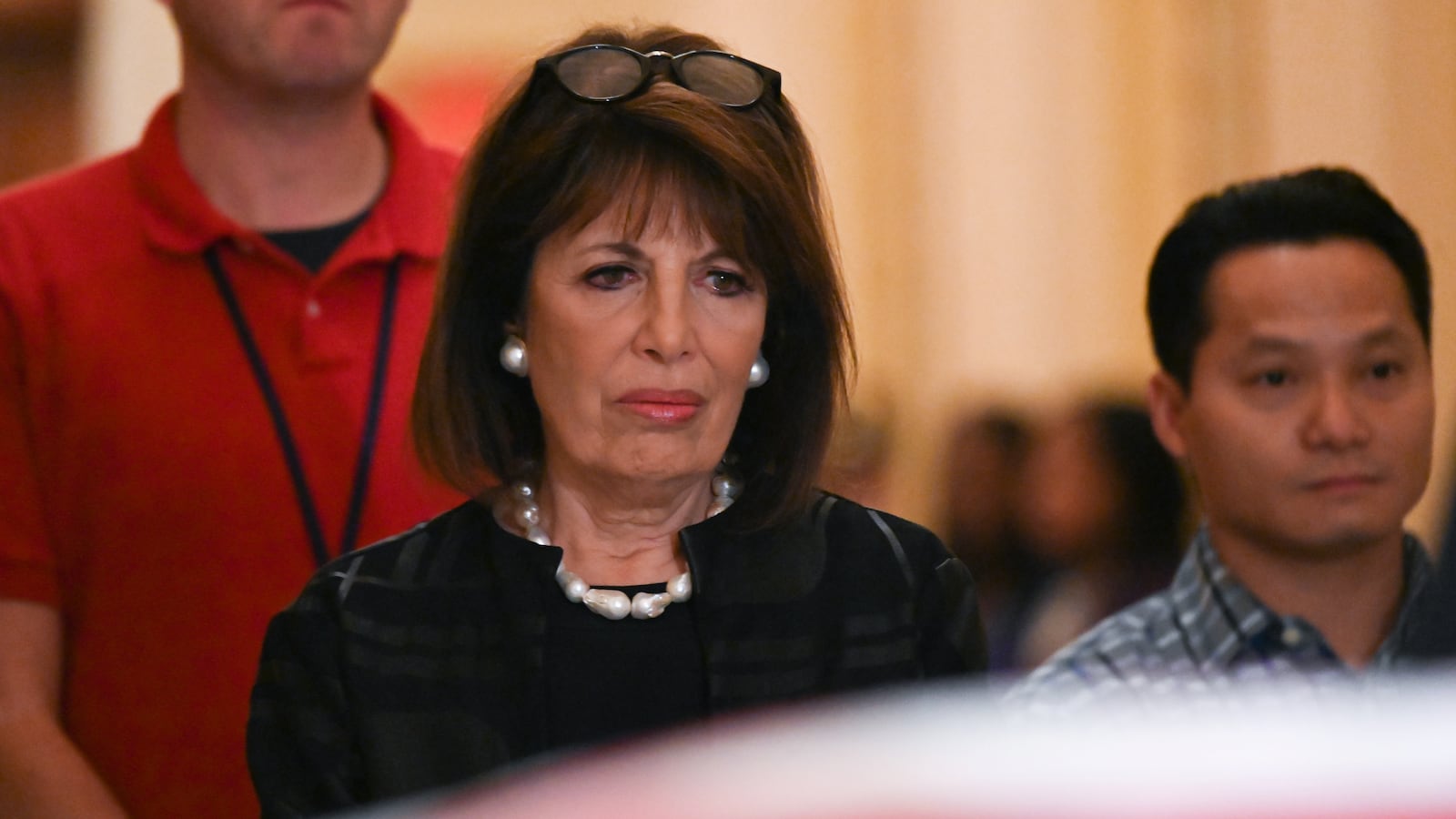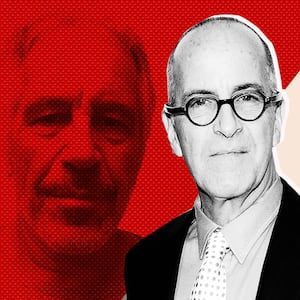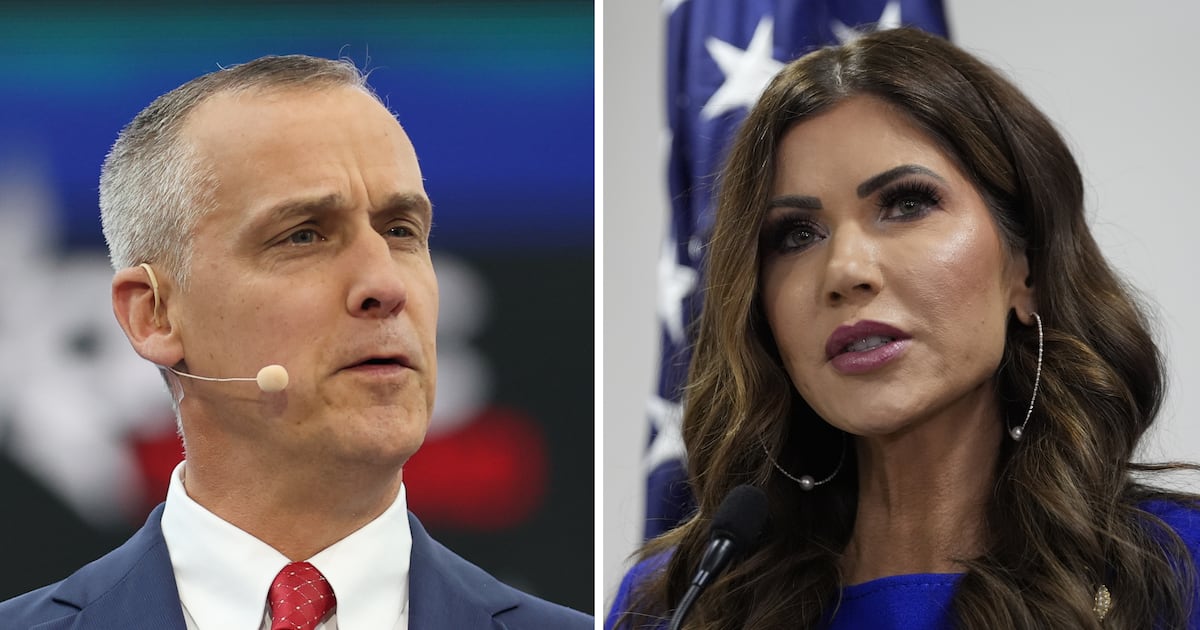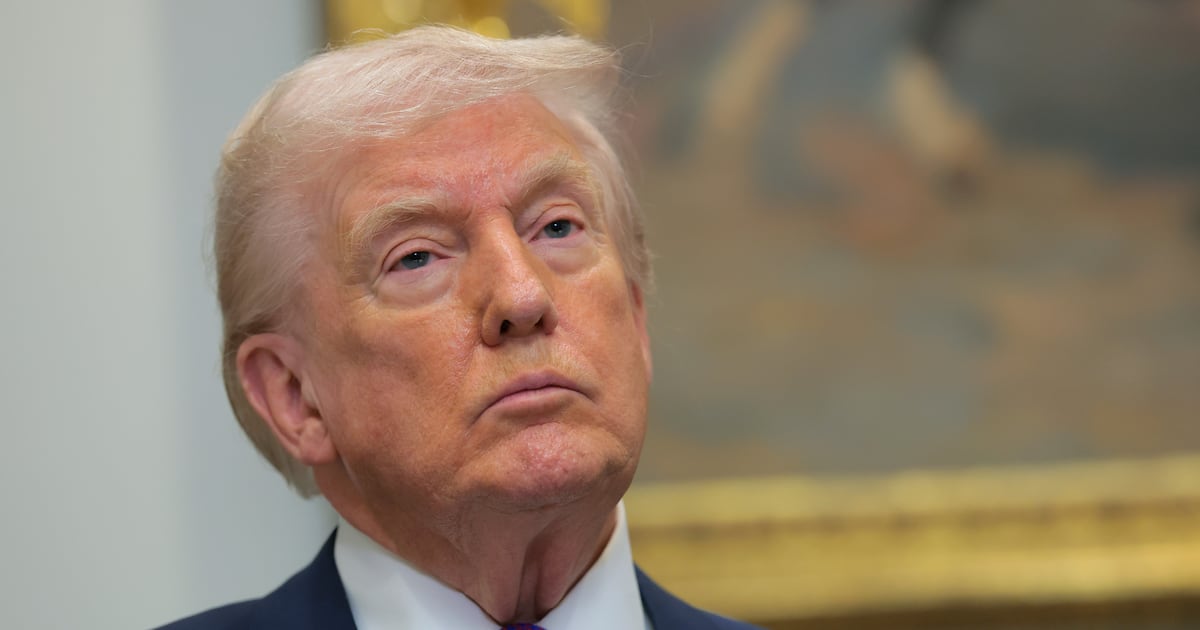In a closed-door briefing to members of Congress about government surveillance, a senior Justice Department official was asked a surprising question.
The question came when intelligence and national security officials gathered earlier this week to brief members of the House Intelligence Committee on the Foreign Intelligence Surveillance Act (FISA), a law with some authorities that will expire in several weeks. Rep. Jackie Speier, a California Democrat, prefaced her question by saying it was a bit off-topic. According to two sources with knowledge of the briefing, Speier then asked John Demers, the Assistant Attorney General of the National Security Division at the Justice Department, whether Jeffrey Epstein had ever worked as an undercover FBI asset. Then she pressed him on whether he had any personal knowledge of Epstein—a convicted pedophile who died in jail last August, awaiting trial—working with the FBI.
Demers responded that he worked for the Justice Department, not the FBI, and that he had no knowledge of Epstein doing such work. The question raised eyebrows, as it appeared to be based on a theory that law enforcement officials may have turned a blind eye to the serial rapist because he helped them gather information.
A Justice Department spokesperson declined to comment, and a spokesperson for Speier did not provide on-record comment.
The Miami Herald reported in November 2018 that, as part of an extremely generous plea deal he received from then-U.S. Attorney Alexander Acosta’s office in 2007, “Epstein provided what the government called ‘valuable consideration’ for unspecified information he supplied to federal investigators.” The Herald said it was unclear what information, if any, Epstein shared with law enforcement.
And Vicky Ward reported for The Daily Beast last August that Acosta later told Trump transition team officials that Epstein’s case was connected to intelligence matters. He went on to become Secretary of Labor. “I was told Epstein ‘belonged to intelligence’ and to leave it alone,” Acosta privately told Trump transition team officials before his confirmation, per Ward’s story.
On July 8, 2019, the Justice Department charged Epstein with sex trafficking of underage girls. In a lengthy press conference two days later, Acosta fielded a question about whether or not the sexual predator was an “intelligence asset.”
“So, there has been reporting to that effect,” he said obliquely, per The Washington Examiner. “And let me say, there’s been report to a lot of effects in this case. Not just now but over the years. And again, I would, I would hesitate to take this reporting as fact.”
Acosta’s efforts to explain his generous treatment of the serial rapist were not enough to save his job; after facing blistering criticism, he resigned from the Trump administration on July 19.
Epstein was found dead in his prison cell less than a month later. The New York City Medical Examiner’s Office said the death was a suicide; a private pathologist hired by Epstein’s brother said it could have been a homicide, as The New York Times reported. Attorney General William Barr said the Justice Department’s top watchdog was investigating the circumstances of Epstein’s death.
Epstein and his longtime associate Ghislane Maxwell had countless powerful friends and acquaintances. In 2002, future President Donald Trump said Epstein liked “beautiful women as much as I do, and many of them are on the younger side.” Bill Clinton flew on Epstein’s notorious private jet numerous times. And Democratic presidential candidate Michael Bloomberg was photographed at a public event with Maxwell in 2013. Epstein’s connections even extended to literal royalty; Prince Andrew spent a significant amount of time with him before his death, and stepped back from his royal duties after giving a trainwreck interview to the BBC about his relationship with the serial child rapist.







